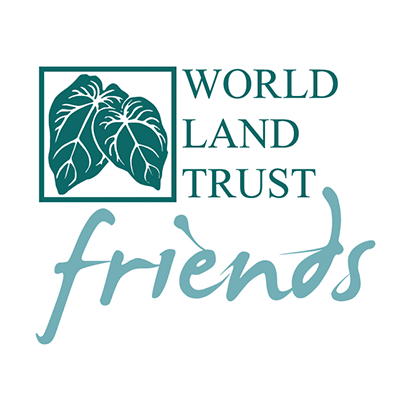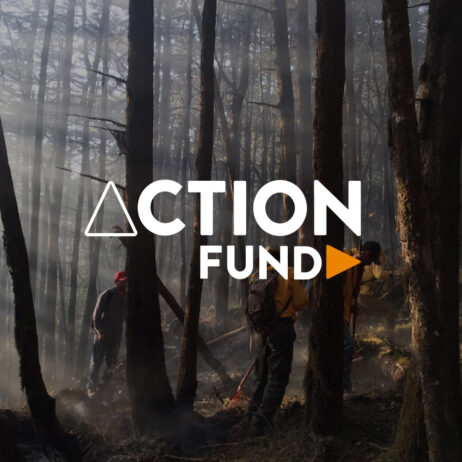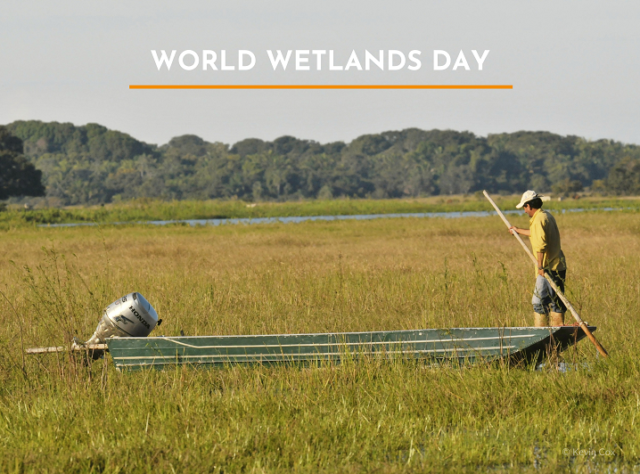
Wetlands are a habitat that brings a multitude of benefits to conservation, community and climate – join us as we celebrate these ecosystems on #WorldWetlandsDay.
Today, as World Wetlands Day 2022 is marked across the globe, we are celebrating an ecosystem that plays a vital role for wildlife and communities all around the world. For years, World Land Trust (WLT) supporters have been helping our partners protect wetland habitats in countries from Bolivia to Brazil, Colombia, Guatemala, India or Zambia – and today we’d like you to discover them.
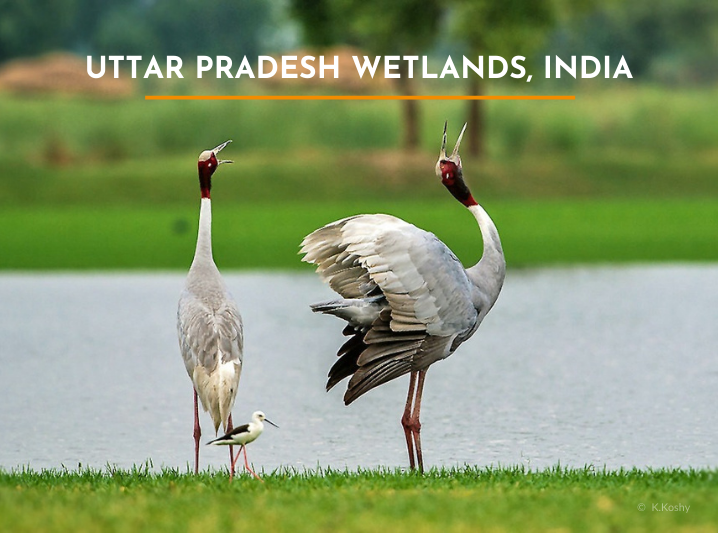
In recent years, WLT supporters have been funding Wildlife Trust of India’s Sarus Crane Wetland Project – helping to save wetland habitats so that this Vulnerable bird can raise a new generation of chicks in safety.
1: Wetlands are a haven for biodiversity
Wetlands are home to hundreds of species, and play a key role in food chains and life cycles. Whether they provide a safe and protected area for breeding, or a shelter from predators, or a source of food and nutrients – thriving wetlands are a sign of a healthy and biodiverse ecosystem.
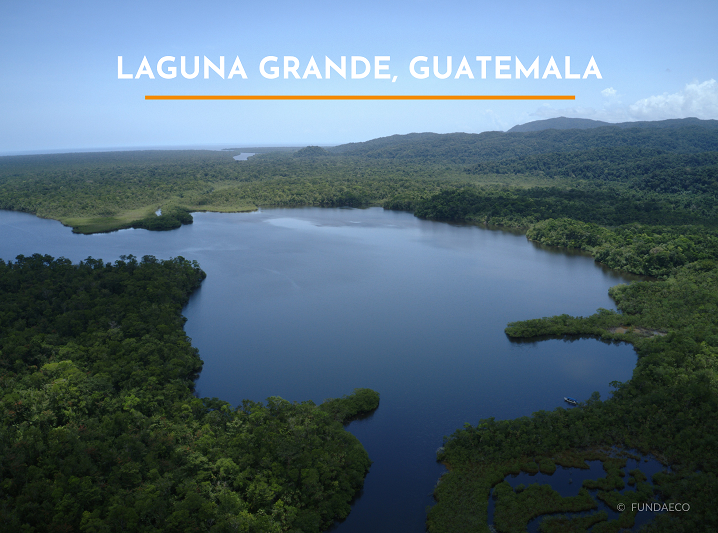
In 2021, WLT supporters raised an incredible £1,370,000+ to help our partner FUNDAECO expand the Laguna Grande Reserve, safeguarding a tropical chain of wetlands, mangroves and forests all around this Guatemalan lagoon.
2. They act as nature’s kidneys
Wetland ecosystems serve as large, living water filters. Natural sediment and minerals will settle in the standing water, but most of the filtration properties come from plants and microorganisms that absorb chemical runoff from agriculture and industry and help purify drinking water for wildlife and communities.
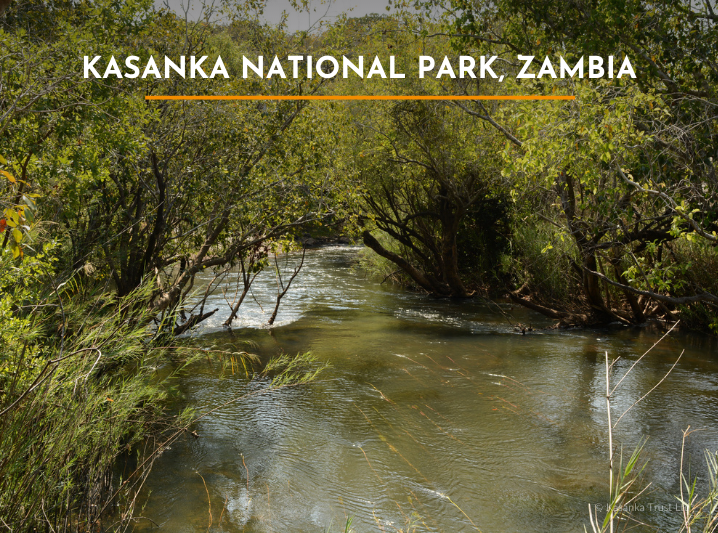
Many local communities living around Kasanka National Park depend on the harvesting of non-timber forest products for their livelihoods – a project which is sustainably managed by WLT partner Kasanka Trust.
3. They support local livelihoods
Wetlands are often a lifeline for local people, providing families with food, livelihood and transportation. They can also help protect communities as they act as a coastal defence against floods and storms, a key contribution in a world where the impacts of climate change are intensifying year after year.
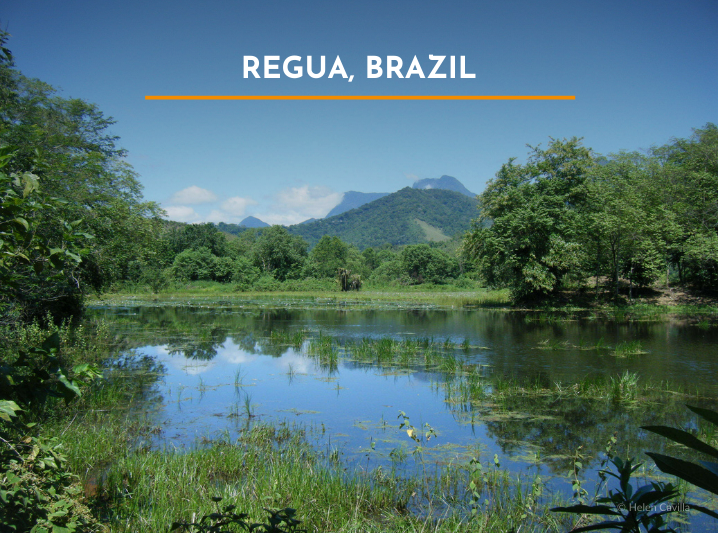
REGUA protects some of the last remnant areas of Brazil’s Atlantic Forest and work to restore forests within the Guapiaçu Watershed – home to wildlife not found anywhere else on Earth.
4. They help fight climate change
As well as acting as a barrier against climate disasters, wetlands are also incredible carbon sinks. These habitats are rich in plant species which break down in the waterlogged soils when they die, creating stores of carbon-rich nutrients. The absorption of carbon dioxide through plant photosynthesis, followed by the locking-in of this carbon into the soil, slowly removes the greenhouse gas from the atmosphere.
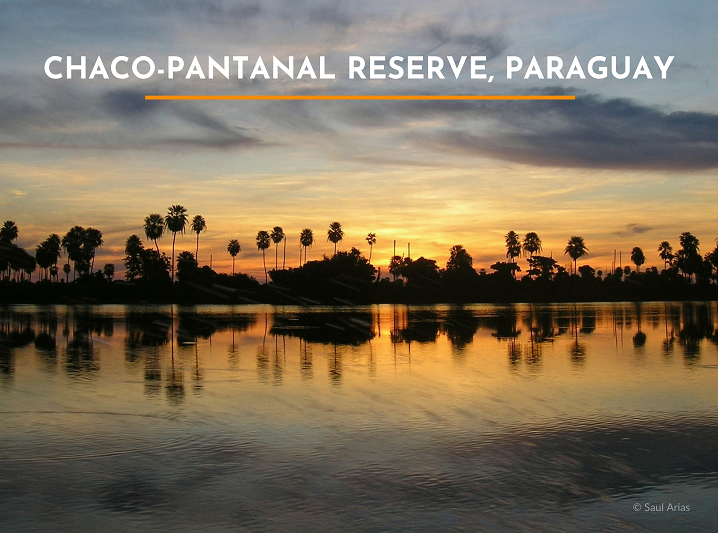
The Chaco-Pantanal Reserve, managed by our partner Guyra Paraguay, is a unique transition zone between the Dry Chaco grasslands to Paraguay’s west and the world’s largest wetland – the Pantanal – to the east.
If we lose the world’s wetlands, we lose a key natural resource that so much life on Earth relies upon.
On #WorldWetlandsDay, the UN has called to take action to save these habitats – and this is precisely what you can do, through us. By becoming a WLT Friend, you will be committing to regular donations to Action Fund projects, joining the supporters who in recent years funded the protection of wetland habitats in India so that Sarus Cranes can raise their chicks in safety.
Together, we can make a difference for an ecosystem the world cannot afford to lose.
